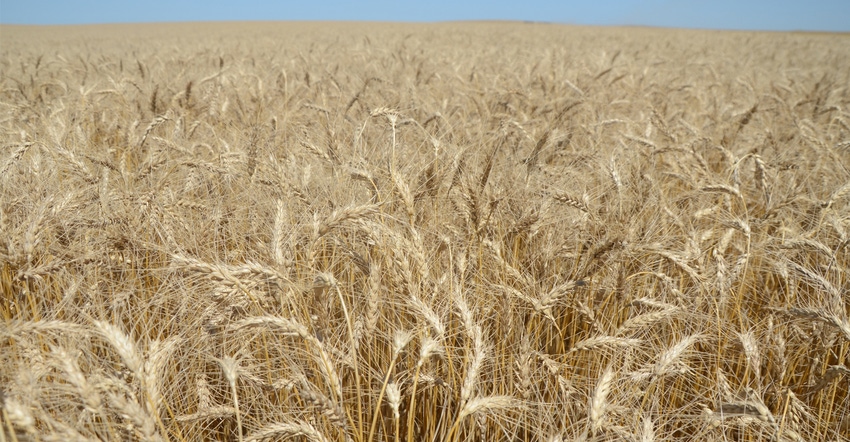July 8, 2020

The Nebraska Crop Variety Testing Program is evaluating winter wheat, spring wheat, corn and grain sorghum at locations across the state in 2020. Additional crops are also tested by individual researchers, such as dry bean, sunflower, field pea and proso millet.
NCVTP yield data is collected and published in seed guides and at the University of Nebraska-Lincoln’s CropWatch to help producers select their varieties for the coming year.
Variety selection can be a complicated process for producers for any crop because it is more than just yield. Varieties have different disease packages, herbicide traits, maturities, target environments, grain qualities and plant characteristics that need to be considered. Moreover, target market, seed cost, variety protection and other use limitations need to be considered.
Why should a producer consider changing varieties? Simply put, recently released varieties have the latest disease resistance packages and greatest yield potential. A recent report noted that from 1959 to 2008, the annual genetic yield gain of winter wheat was nearly 1%. Wheat varieties also lose their disease resistance over time as disease changes in race occur.
Use the data
The process of determining which varieties to use begins by using proper data reports. Remember, variety selection is more than just picking the variety that did the best last year, it is predicting which variety will do the best in the future. This can only come from multiyear and multi-environment trial averages.
The 16 winter wheat trials are grouped into five categories or regions. They are Panhandle, west, central, east and irrigated. Each year, two- and three-year trial averages are reported for each region. Use these averages to narrow down the list of possible varieties.
To further refine this short list, a producer might consider the specific traits of each wheat, its disease package and other characteristics of interest. Also, consider varieties in the short list performed at individual sites within a region. When using individual sites, consider and give more value to yield data that:
is closer in proximity to your farm
has a similar soil type
uses similar crop rotations or fertility programs
Some producers may like to push their wheat for higher yields using additional inputs. To provide improved data for these producers, two intensive management wheat trials were conducted adjacent the regular management variety trial near Mead and Sidney. This will help to identify wheat varieties that perform well with additional fertilizer and fungicides.
Two important things to understand about data is the least significant difference and the coefficient of variation. The LSD indicates the amount required for differences between varieties to be significant. The CV indicates the quality of the yield trial. The lower the number, the higher the quality of the trial. Usually, 15 or below is considered a quality trial. Anytime the number is greater than 15, use extreme caution when interpreting the data.
For example, the CV of the winter wheat yield trial near Sidney was 20.1 in 2019. The trial was hailed on prior to harvest reducing the quality of the trial. Although the data was reported, it should not be heavily relied upon for making decisions.
Beginning in July, variety testing results are posted to UNL’s CropWatch website. Winter wheat and spring wheat will be posted first. Other crops will follow as they are harvested. The NCVTP is a neutral, unbiased testing program that strives to deliver reliable data in a way that is easily understood and used. If you have any questions or would like help understanding the data, please reach out to me or research assistant Amanda Easterly.
Creech is a Nebraska Extension dryland cropping systems specialist.
Read more about:
Variety SelectionAbout the Author(s)
You May Also Like




